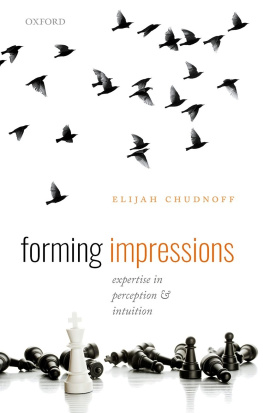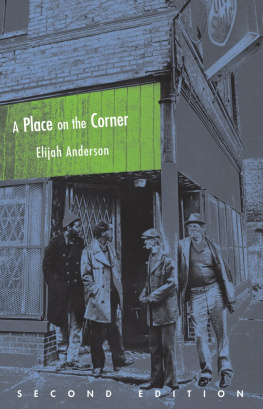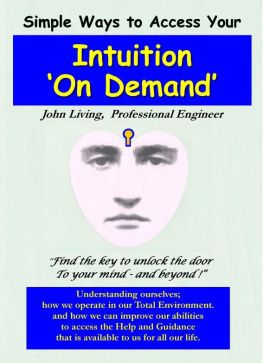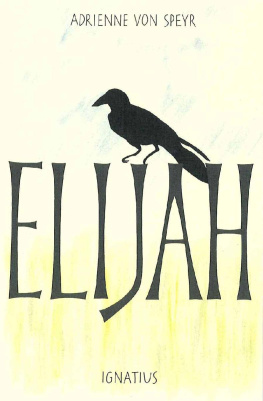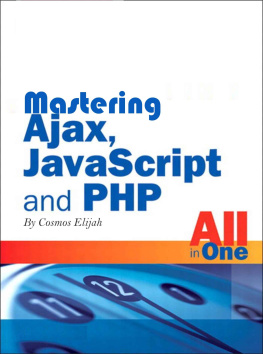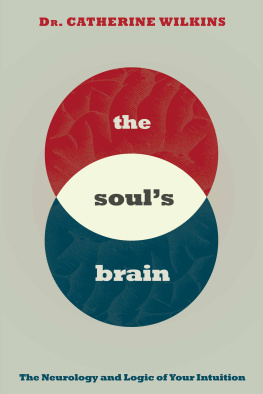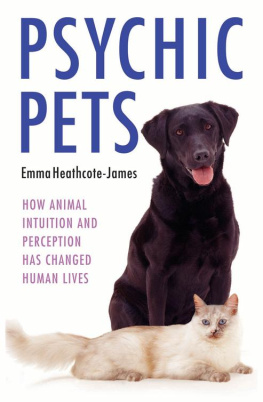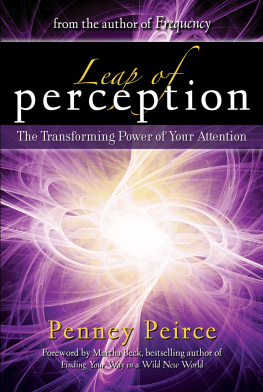Elijah Chudnoff - Forming Impressions: Expertise in Perception and Intuition
Here you can read online Elijah Chudnoff - Forming Impressions: Expertise in Perception and Intuition full text of the book (entire story) in english for free. Download pdf and epub, get meaning, cover and reviews about this ebook. year: 2020, publisher: Oxford University Press, genre: Romance novel. Description of the work, (preface) as well as reviews are available. Best literature library LitArk.com created for fans of good reading and offers a wide selection of genres:
Romance novel
Science fiction
Adventure
Detective
Science
History
Home and family
Prose
Art
Politics
Computer
Non-fiction
Religion
Business
Children
Humor
Choose a favorite category and find really read worthwhile books. Enjoy immersion in the world of imagination, feel the emotions of the characters or learn something new for yourself, make an fascinating discovery.
- Book:Forming Impressions: Expertise in Perception and Intuition
- Author:
- Publisher:Oxford University Press
- Genre:
- Year:2020
- Rating:3 / 5
- Favourites:Add to favourites
- Your mark:
- 60
- 1
- 2
- 3
- 4
- 5
Forming Impressions: Expertise in Perception and Intuition: summary, description and annotation
We offer to read an annotation, description, summary or preface (depends on what the author of the book "Forming Impressions: Expertise in Perception and Intuition" wrote himself). If you haven't found the necessary information about the book — write in the comments, we will try to find it.
Forming Impressions: Expertise in Perception and Intuition — read online for free the complete book (whole text) full work
Below is the text of the book, divided by pages. System saving the place of the last page read, allows you to conveniently read the book "Forming Impressions: Expertise in Perception and Intuition" online for free, without having to search again every time where you left off. Put a bookmark, and you can go to the page where you finished reading at any time.
Font size:
Interval:
Bookmark:


Great Clarendon Street, Oxford, OX2 6DP, United Kingdom
Oxford University Press is a department of the University of Oxford. It furthers the Universitys objective of excellence in research, scholarship, and education by publishing worldwide. Oxford is a registered trade mark of Oxford University Press in the UK and in certain other countries
Elijah Chudnoff 2021
The moral rights of the author have been asserted
First Edition published in 2021
Impression: 1
All rights reserved. No part of this publication may be reproduced, stored in a retrieval system, or transmitted, in any form or by any means, without the prior permission in writing of Oxford University Press, or as expressly permitted by law, by licence or under terms agreed with the appropriate reprographics rights organization. Enquiries concerning reproduction outside the scope of the above should be sent to the Rights Department, Oxford University Press, at the address above
You must not circulate this work in any other form and you must impose this same condition on any acquirer
Published in the United States of America by Oxford University Press
198 Madison Avenue, New York, NY 10016, United States of America
British Library Cataloguing in Publication Data
Data available
Library of Congress Control Number: 2020947359
ISBN 9780198863021
ebook ISBN 9780192608031
DOI: 10.1093/oso/9780198863021.001.0001
Printed and bound by
CPI Group (UK) Ltd, Croydon, CR0 4YY
Links to third party websites are provided by Oxford in good faith and for information only. Oxford disclaims any responsibility for the materials contained in any third party website referenced in this work.
For Helene and Lori
My work on this book began where the book itself endswith a conception of philosophical methodology.
The conception, in brief, is this: intuitions play a central role in philosophy; their role, however, is not that of starting points for reasoning that tests philosophical theories; rather, intuitions are more often the results of reasoning that draws on the resources contained in philosophical theories; nonetheless, intuitions constitute the epistemic foundation that makes the whole enterprise result in justified philosophical beliefs. Context, elaboration, defense, and a tracing of historical pedigree can be found in the main text.
Much of the book deals with the epistemology of perception and with philosophical issues raised by the psychology of expertise. These might seem remote from concerns about philosophical methodology, but on the approach that I take they are central. There are two key ideas.
First, I endorse a view of intuition according to which it is a form of intellectual perception. In seeing, hearing, and other forms of sensory perception, dedicated perceptual processes result in perceptual experiences that present the concrete world as being a certain way. In the case of intuition, general cognitive processes result in intuition experiences that similarly present abstract mattersfor example, mathematics, metaphysics, and moralityas being a certain way. Different processes, different subject matter, similar phenomenology. In this book I use the term impression to generalize over perceptual experiences (sensory impressions) and intuition experiences (intellectual impressions). I believe that impressions have a unified epistemology that is grounded in their similar phenomenology. For reasons explained in the main text, development of this unified epistemology often benefits from a special focus on the case of sensory impressions.
The second key idea is this: the role that I see intuition as playing in philosophical methodology hinges on its improvability through reasoning. This is a kind of learning. But it is notor not justlearning that results in storage of facts in memory or learning that results in possession of skills for action. It is learning that results in capacities to experience differently. That is how it will strike one if one thinks of intuition as a form of intellectual perception. And the natural place to look for illumination on the natures of the changes that occur in such learning, and the mechanisms that bring those changes about, is the research literature on perceptual learning and perceptual expertise. That literature contains a wealth of studies and models aimed at better understanding kinds of learning that result in capacities to experience differently. Difficulties confront any attempt to draw clear lessons for philosophy, however. Just to intimate: there is also a research literature on expert intuition itself; clearly, that will be relevant; but while perceptual learning, perceptual expertise, and expert intuition are often discussed together in high level surveys and reviews, the ground-level studies and models are largely independent; so, how are we to navigate? Addressing questions such as this leads into basic issues in the philosophy of psychologyissues concerning perception and action, modularity and cognitive architecture, phenomenal experience and representational content. These issues themselves bear on epistemological and methodological concerns, and views about them defended earlier in the book inform in an essential way the approach to philosophical methodology developed later in the book.
Ive sketched my own path from concern with philosophical methodology to the philosophy of psychology. The introduction sets out matters in a more systematic fashion beginning with the philosophy of psychology. Before getting to that, however, I want to take an even more personal turn and acknowledge the help that I received while working on this book.
My first talk about the conception of philosophical methodology sketched above and developed later in this book was in a session at the 2014 Central APA in Chicago with Herman Cappelen and Jennifer Nagel. I discussed it again at a workshop in Hong Kong that included Herman and Jennifer again as well as John Bengson, Chen Bo, Max Deutsch, Jonathan Ichikawa, Dan Korman, Jennifer Nado, Darrell Rowbottom, and Jonathan Weinberg. I am grateful to the participants in these two events for crucial early suggestions on how to address current controversies about philosophical methodology. My thoughts on the improvability of intuition through reasoning and the place of intuition in philosophical methodology benefited from further discussions at the Universities of Antioquia, Bergen, Connecticut, Fribourg, Graz, and Lige, as well as EAFIT University, Humboldt University, Sorbonne University, and Regensberg University. Thanks to Eli Alshanetsky, Magdalena Balcerak-Jackson, Tim Bayne, Philip Berghofer, Arnaud Dewalque, Daniel Dohrn, Jonathan Ichikawa, Marta Jorba, Nathan Kellen, Ole Koksvik, Franz Knappik, Sonja Rinofner-Kreidl, Holger Leuz, Michael Lynch, Michelle Montague, Santiago Arango-Munoz, Martina Nida-Rmelin, Gianfranco Soldati, Galen Strawson, Margot Strohminger, and Emile Thalabard for discussion on these occasions.
The epistemology of perception and intuition defended in this book expands and elaborates views defended in my first book, Intuition. A series of seminars co-taught with Berit Brogaard at the University of Miami on these topics was a stimulus for these developments and a testing ground for different ways of carrying them out. I presented related work to audiences at the University of Maryland, Southern Methodist University, University of Oslo, University of Montreal, and University of Luxembourg, as well as at various meetings of the American Philosophical Association, and the Southeastern Epistemology Conference. I am grateful to Thiemo Breyer, Peter Carruthers, Timothy Chan, Philippe Chuard, Fabian Dorsch, Maxime Doyon, Matt Frise, Frank Hoffmann, Robert Howell, Jack Lyons, Anna-Sara Malmgren, Jennifer Matey, Jonathan Matheson, Kevin McCain, Ben McCraw, Andrew Moon, Anders Nes, Ram Neta, Nico Orlandi, Christopher Peacocke, Paul Pietroski, Ted Poston, Declan Smithies, Christine Tappolet, Amanda Taylor-Aiken, Deborah Tollefsen, Mike Veber, Sabastian Watzl, Chase Wrenn, and Sarah Wright, for discussion on these occasions.
Font size:
Interval:
Bookmark:
Similar books «Forming Impressions: Expertise in Perception and Intuition»
Look at similar books to Forming Impressions: Expertise in Perception and Intuition. We have selected literature similar in name and meaning in the hope of providing readers with more options to find new, interesting, not yet read works.
Discussion, reviews of the book Forming Impressions: Expertise in Perception and Intuition and just readers' own opinions. Leave your comments, write what you think about the work, its meaning or the main characters. Specify what exactly you liked and what you didn't like, and why you think so.

